World Book Day ideas for schools – Simple ideas for 2025

Get planning for the literary event of the year this March, and celebrate in style with these World Book Day ideas for schools…

- by Teachwire
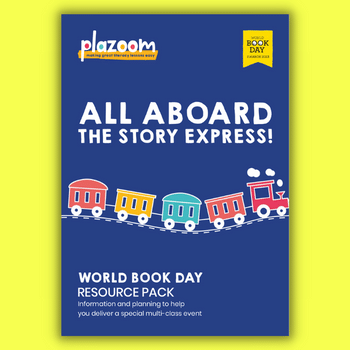
Are you a primary teacher looking for World Book Day ideas for schools? You’re in the right place! We also have a guide to the best World Book Day ideas for secondary schools.
Jump to a section:
- World Book Day resources
- World Book Day EYFS activities
- Ideas from real teachers
- Make the most of your author visit
- Inspirational quotes from authors
What is World Book Day?
World Book Day is all about promoting reading for pleasure and offering every child the chance to have a book of their own.
UNESCO created it in 1995 as a worldwide celebration of reading and books. Now people celebrate it around the world.
When is World Book Day 2025?
World Book Day falls on Thursday 6th March 2025, but it’s never too early to start thinking ahead and planning events for your school.
Here we’ve picked out our favourite World Book Day ideas for schools that will promote reading and get kids excited about books in your school.
Lots of the below ideas are also suitable for International Literacy Day which takes place in September.
£1 World Book Day books
2025’s £1 World Book Day books feature stories and characters from family favourites such as Bluey and Paddington Bear, along with contributions from esteemed authors like Julia Donaldson, Joseph Coelho and Benjamin Dean. Books featuring Pokémon and LEGO® also feature in this year’s selection
Children can buy these books with their special World Book Day token in February and March 2025.
What to be for World Book Day
Are you a teacher or parent looking for World Book Day costume ideas? We’ve got you covered!
World Book Day ideas for schools
Here we’ve picked out our favourite simple World Book Day ideas for schools that will promote reading and get kids excited about books in your classroom.
World Book Day lesson plan
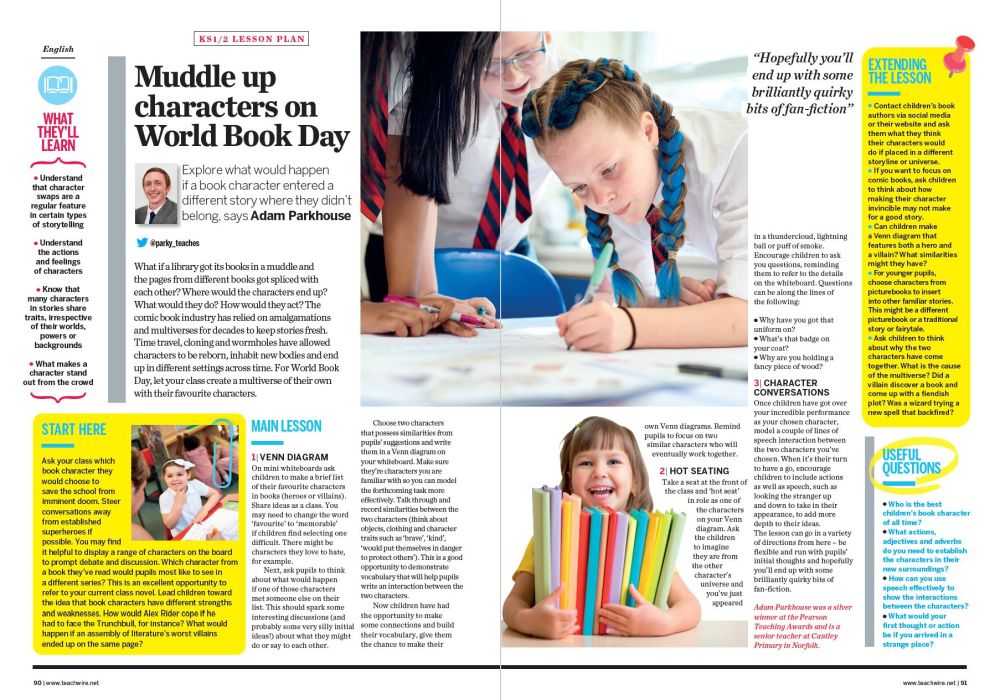
Explore what would happen if a book character entered a different story where they didn’t belong with this free World Book Day lesson plan for KS1 and KS2.
What if a library got its books in a muddle and spliced together the pages from different books? Where would the characters end up? What would they do? How would they act?
For World Book Day, let your class explore this concept and create a multiverse of their own with their favourite characters.
World Book Day activities resource pack
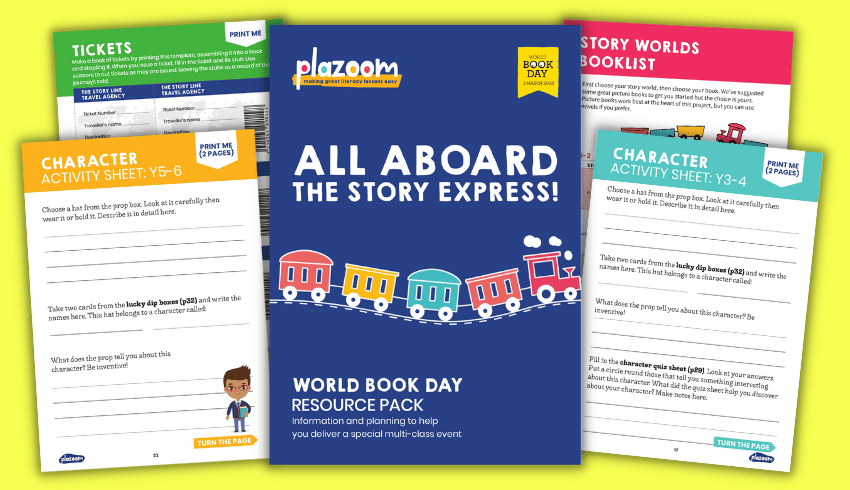
We’ve packed this lovely free resource pack with exciting World Book Day ideas for schools. It features individual lesson ideas for KS1 children and KS2 children.
Plus, there’s also ideas for extending the activities into a whole-school, whole-day book bonanza.
World Book Day resource guide
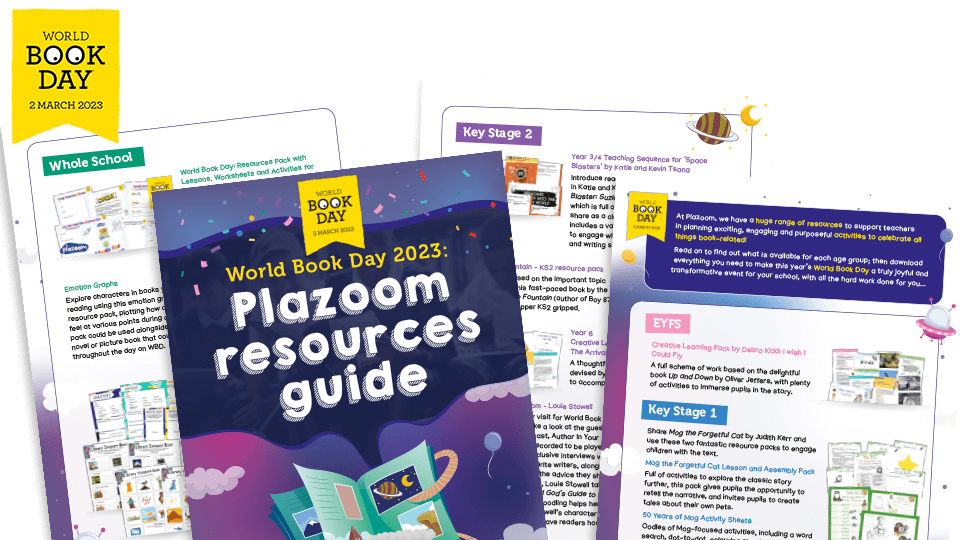
This free resource guide from Plazoom recommends World Book Day activities for each age range from Early Years to Y6, alongside suitable resources, activity ideas, worksheets and more.
Official World Book Day resources
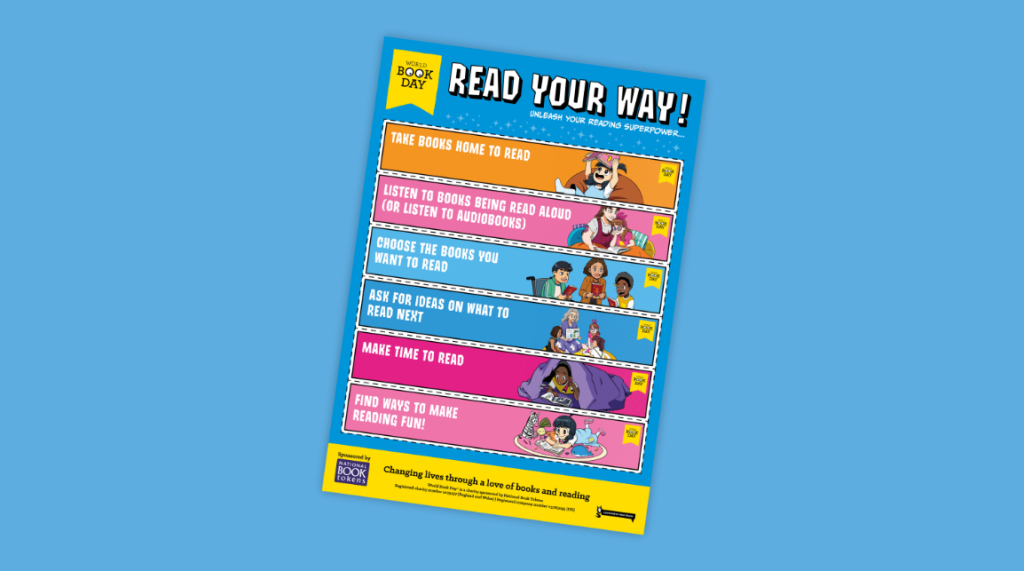
There’s a wide range of downloadable activity packs, assembly plans and online assets available for teachers this year. Browse all the educator resources.
Don’t miss the World Book Day Live Lesson on BBC Teach either. Aimed at KS2, it will be shown live on CBBC and the BBC Teach website on World Book Day.
This World Book Day webinar, first shown in 2023, explores how to engage your wider school community with reading for pleasure.
Paddington whole-school resource pack
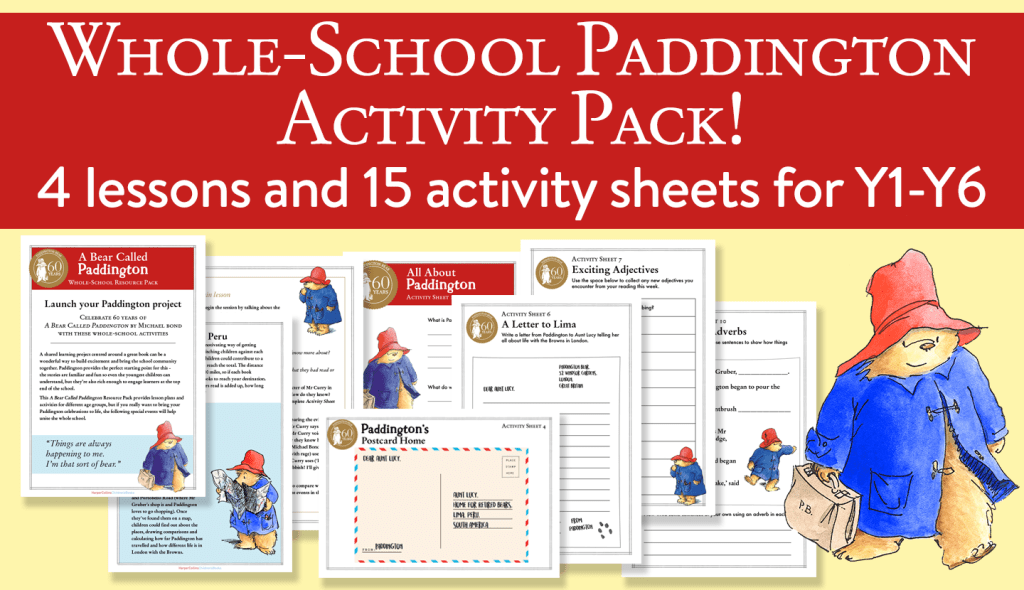
This free KS1/2 Paddington teaching pack is bursting with ideas for teaching English while celebrating Michael Bond’s wonderful Paddington Bear books.
There are four lessons plans, each of which is accompanied by a selection of activity sheets. These can be used individually, or combined as part of a whole-school project.
There are ideas, too, on how your school can join together and use the Paddington Bear books as the inspiration for celebrating literacy and reading for pleasure.
Book review template and guide
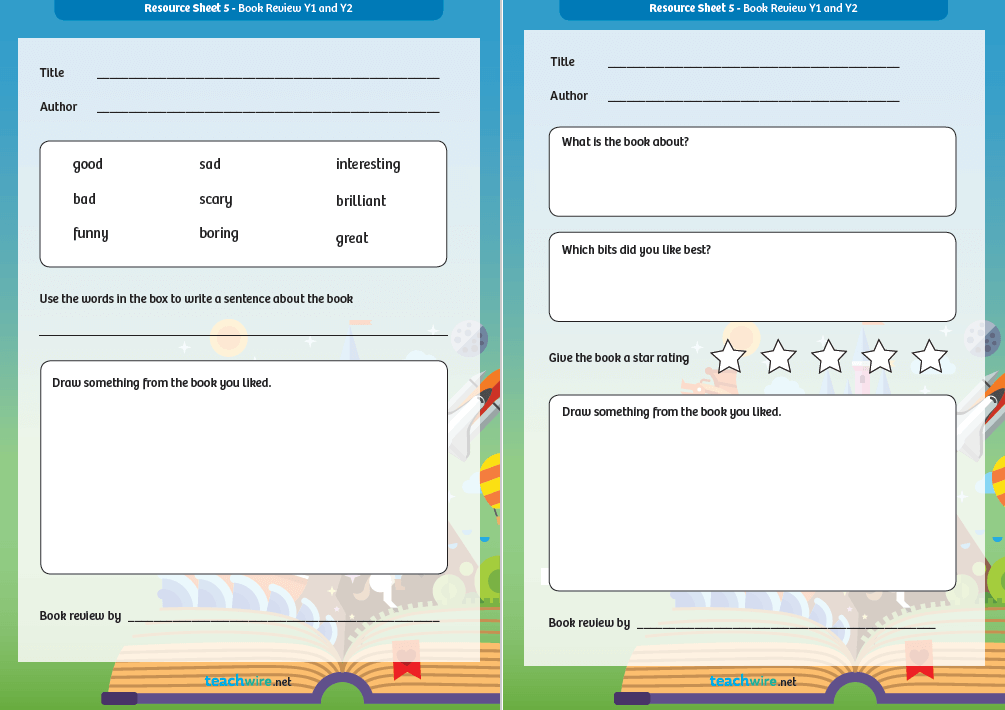
Writing book reviews enables pupils to offer opinions based on first-hand experiences, and these free book review templates make the process super straightforward.
As pupils are required to offer opinions when reviewing their reading, book reviews provide valuable practice at using the subordinating conjunction ‘because’, which makes them particularly useful teaching tools for meeting the writing requirements of KS1.
Mary Poppins teaching pack
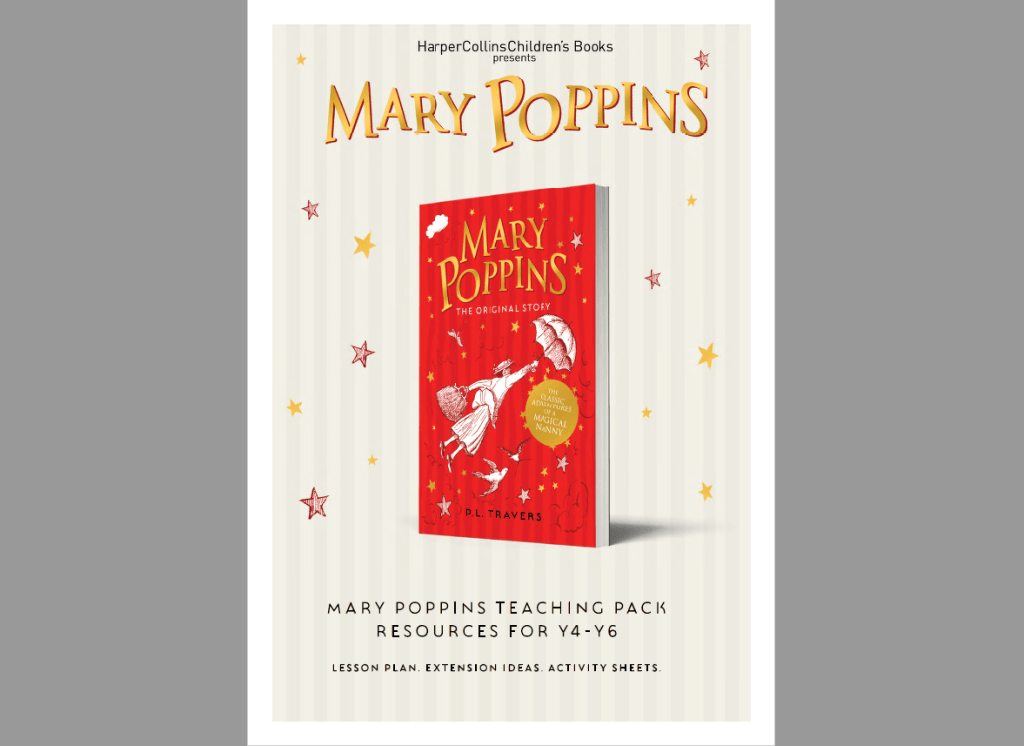
This KS2 Mary Poppins resource pack includes a lesson plan, extension ideas and activity sheets based around the original Mary Poppins book by PL Travers.
So, if your class love the 2018 film version, or have seen the 1964 movie, now you can share the magic of the original stories with them in your school on World Book Day and beyond.
Use maps to inspire storytelling
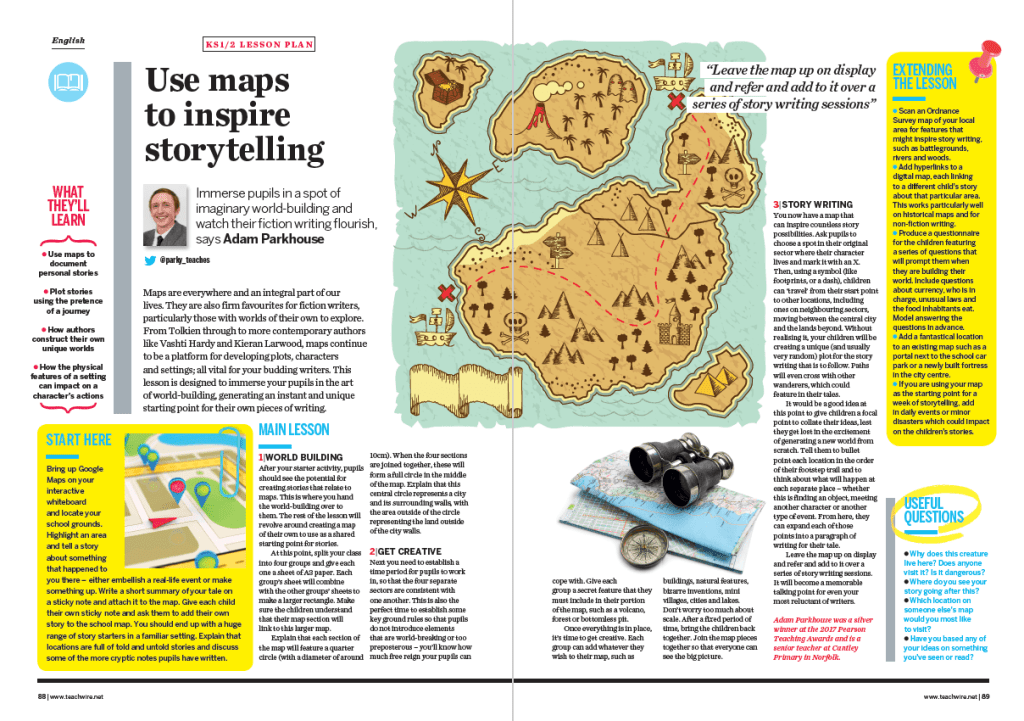
Immerse pupils in a dash of imaginary world-building and watch their fiction writing bloom with this KS1/KS2 English lesson idea from Adam Parkhouse.
Children will learn how to plot stories using a journey as its basis and will think about how the physical features of a setting can impact a character’s actions.
5 questions with…
Online platform Authorfy has teamed up with World Book Day to ask 100+ authors and illustrators about their stories, why they love reading and what books they’d recommend. Watch the videos and download an accompanying worksheet to answer the five questions yourself.
Add sound effects to stories

Do you sometimes imagine sounds in your head when reading? In this free KS1/KS2 music lesson plan, pupils will create a soundtrack to accompany their favourite book, using the instruments available on most school percussion trolleys.
Ten great World Book Day ideas for any book
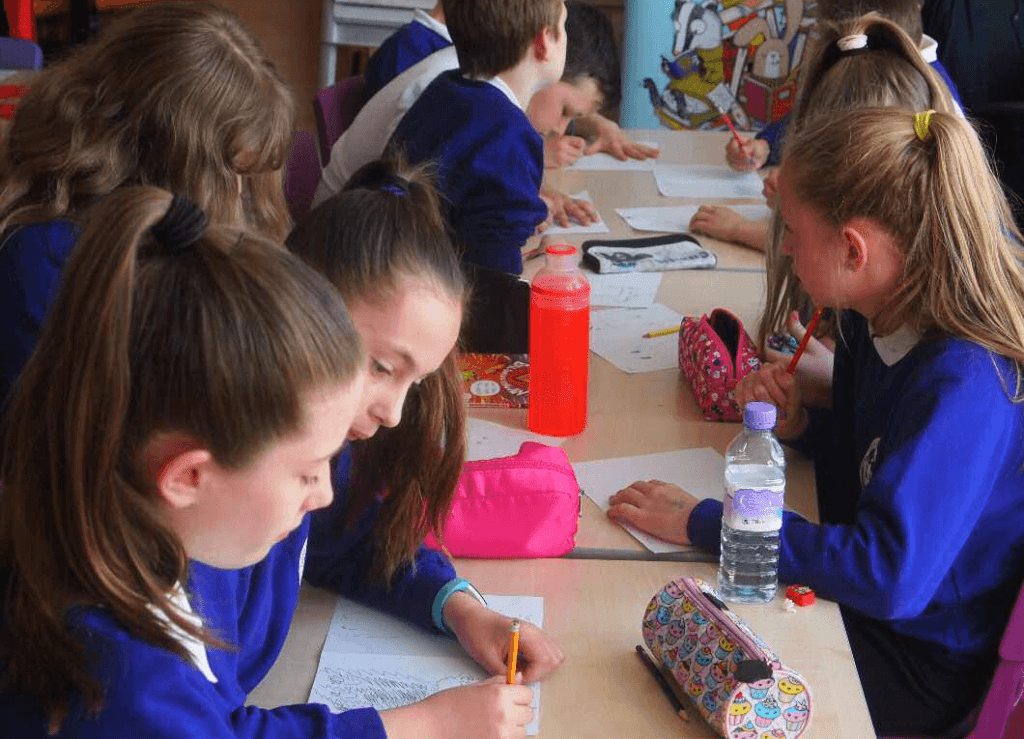
This resource from Scottish Book Trust has been designed to give you activity ideas which are transferable to just about any fiction text in a primary setting – perfect for World Book Day.
The activities will help your pupils get to grips with aspects like plot, character and setting, and also provide opportunities for them to share their opinions about what they’ve read.
World Book Day activities for EYFS
Make fairytale fridge magnets

Getting children to do the storytelling themselves is a great way for them to practise their language and use their creativity, as they adapt the story and give it their own personal twists.
All you need for these fairytale fridge magnets is some card, some small magnets, pens and pencils, scissors and some strong glue.
Make Where the Wild Things Are masks
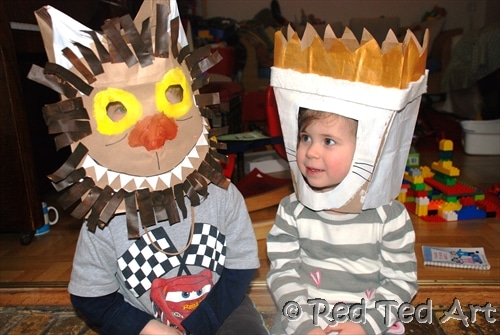
Recreate the iconic Wild Things from Maurice Sendak’s classic children’s book with this arts and crafts activity.
Host a Mad Hatter’s tea party

If going a little mad is more your cup of tea then why not go for an Alice’s Adventures in Wonderland-themed feast instead?
Dear Zoo story sack
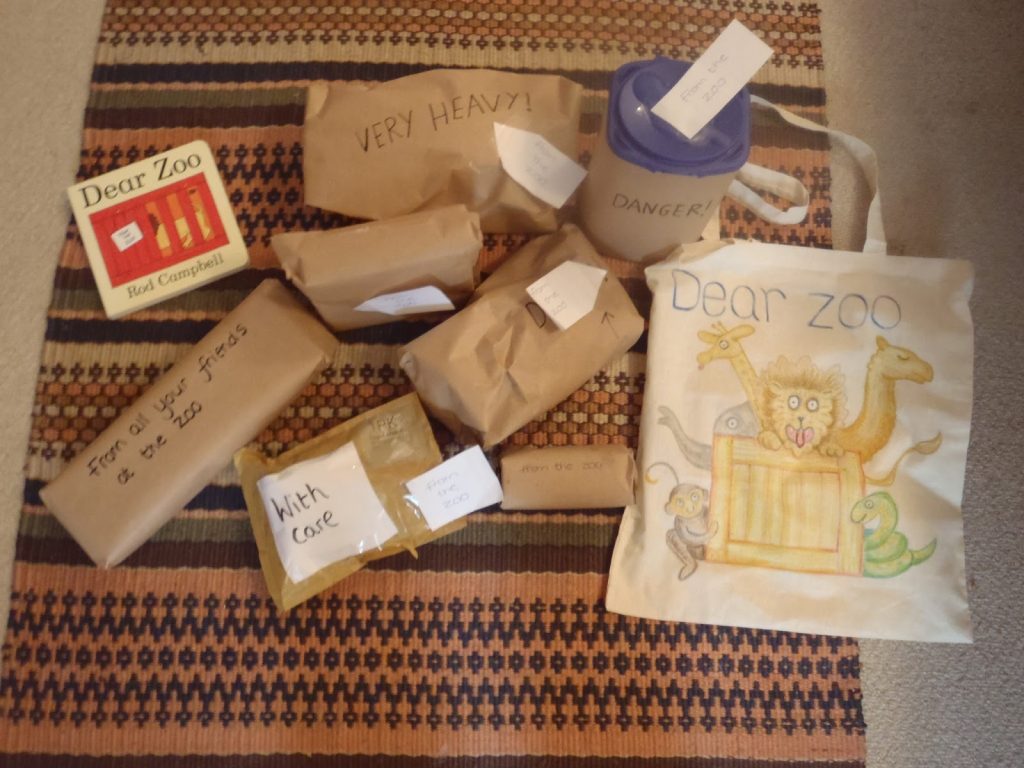
The ever-popular Dear Zoo can be an even bigger hit this World Book Day with a few parcelled up animal toys addressed to your setting.
Create your own Stick Man
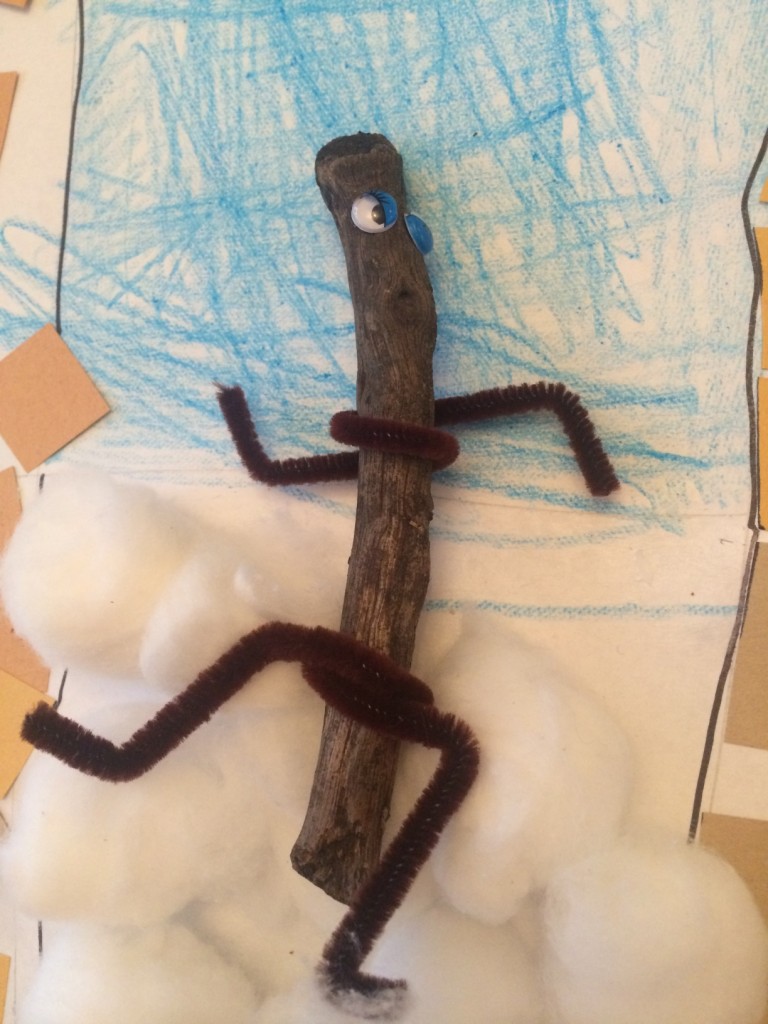
This simple and creative activity lets toddlers make their own Stick Man from Julia Donaldson and Axel Scheffler’s beloved book.
World Book Day teacher ideas
Which World Book Day ideas for schools have worked well? Here, teachers from around the UK share their favourite ideas for this special day.
Blind date with a book

Wrap up books in brown paper and write a dating-ad-style description on the front. Pupils choose a book based on the description. They areen’t allowed to unwrap the book until they leave the library.
Inside the package add a bookmark for pupils to fill in a book review, then choose a winner from all the bookmarks handed back.
Valerie Black, Kilmarnock
Make it a whole week
One day is not enough for us so we celebrate an entire book week. We theme all our lessons that week around a text and usually invite parents in to celebrate reading with us.
Laura Spring, deputy head and English Lead, Roydon Primary Academy, Harlow
Draw large paper character outlines
This activity is great for getting children active on World Book Day while at the same time developing their vocabulary for character descriptions and their role in the story.
Go to a large space and split the children into groups. Using rolls of paper or sheets stuck together, ask one pupil to lie on the floor while the others draw round them.
Next, choose either a character from a story the class is reading together or, if the children have come to school dressed as a book character for World Book Day, use one of these.
Ask pupils to write words to describe the character’s physical appearance and personality within the outline of the body on the floor.
Jon Smedley, former teacher and founder of Teach Active
Perform elevator pitches about your favourite book
Give children one minute to perform an ‘elevator pitch’ about why their book should be added to the class or school library.
They need to explain why it’s a great read, what they learnt about writing from it and, if applicable, what moral lesson they learnt from the book.
This gets pupils enthused about their book and gives them practice with sequencing ideas and public speaking.
Matthew Lane, Y6 teacher, Hethersett CEVC Primary, Norfolk
Extreme reading competition
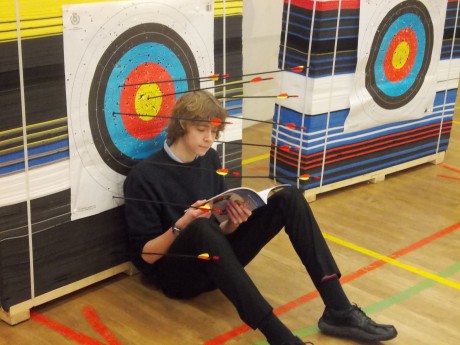
Ask parents to take photos of their children reading in extreme (or at least very unusual) places and email them in to school to display on World Book Day. Google ‘extreme reading’ for inspiration.
Ken Maslin, London
Drop everything and read
I like doing “drop everything and read” on World Book Day. Everyone brings in a favourite book from home, including all the adults. At various intervals during the day I ring a bell and everyone picks up their book and reads, me included.
I then ring the bell again and everyone goes back to what they were doing. Last year the children loved it so much that we carried it on the following day as well.
It led to wonderful discussions about why we’d all chosen our books and the children particularly enjoyed hearing about the adults’ reading choices, which ranged from a recipe book to a non fiction book about Roman artefacts.
It also told me a lot about the reading preferences of my pupils.
Sharon Matthews, Y3 teacher, Walton-on-the-Hill Primary, Tadworth
Create a poetry anthology
We give children across our academy chain a stimulus to write a poem about (positive emotions, for example). Outstanding poems from each academy are selected for publication in a special anthology which is displayed in each of the schools involved.
Our aim is to inspire the pupils – the future authors sitting in our classrooms – to aim high and dream big.
The anthology not only gives a purpose for writing, which drives the standard of work, but can ultimately lead to transforming the life chances of our pupils.
Ben McGarry, associate director of English, Outwood Grange Academies Trust
Write 12 stories as a school
As part of a drive to improve writing outcomes, I organised a whole-school story writing activity. Each class put a picture of a main character, a setting and an interesting object in a box.
On Monday, each class in school worked together to write the first paragraph of their story, using the character, setting and object they’d selected.
On Tuesday the box and first paragraph was passed to a different class who then wrote the second paragraph.
By Friday there were 12 different stories on display in the corridor. We hadn’t anticipated how excited the pupils would be each morning to see the next stage of their story appear.
Kathryn Burgess, functional skills tutor and former primary teacher, Cornwall
Make an A3 book as a class
Recreate the book you’re studying in class by asking each child to create an A3 page that dives into a particular character, setting, message or illustration.
At the end of the day, compile the A3 pages into a book and add a child’s version of the original front cover. Place the new version in the school library for others to view.
Jillian Reilly, deputy head of primary, GEMS Founders School Dubai
Literacy murals
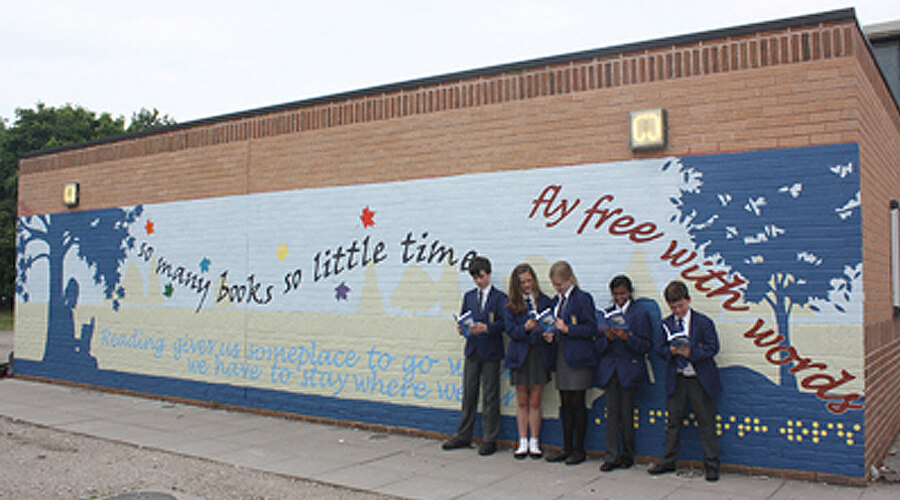
We created two literacy murals representing both the ideas that come from reading and also the house system of our Academy.
Students from the school worked with a local professional artist to design the original wall, and as it was so successful we created another.
Daniel Thornhill, Derby
Create a supervillain
We had a class discussion to create a supervillain. Our villain was called Trevor Vickers: International Story Stealer.
Within class, we created crime scenes, newspaper articles and wanted posters for Trevor Vickers. We then wrote stories and chose wow words to defeat him.
We then rounded it off with a huge pantomime where teachers dressed as Trevor and we acted out some of the stories we had created together.
Lucy Hennessy, Bristol
Design a character’s bedroom
Bedrooms reflect a person’s personality. Ask pupils to design one for the character in a story.
Ask them to think about the things in their own bedroom – did they choose the wallpaper, duvet cover, bed? How long ago? What things do they have lying about – devices, clothes, homework or old toys. Is it tidy or messy?
Cut pictures out of magazines to show what it would look like and add reasons for choices in text pop-outs.
Julia Sutherland, Edinburgh
Book trailers
Book trailers are a great way for students to promote books to their peers and learn lots of skills too.
They can be as simple as PowerPoint presentations or images put into Movie Maker or be full-blown videos.
Online software such as Animoto can also be used. We held a competition which created a real buzz around favourite books, and we have a collection of trailers we can keep.
Susan Waller, Tunbridge Wells
Comic making
Children made comics and mini-books based on their topic work. The finished comics were displayed in the hall and the children were given the chance to read each other’s comics.
Hannah Sackett, Bath
Tasty book competition
We ran a cake-making/decorating competition with entries based on a literary theme. The cakes were sold at lunchtime to raise funds for new books for the library.
Julie Settle, Thetford
Book speed dating
We tried Book Speed-dating in the library. About 20 students brought along a copy of their favourite book, and had a minute to tell the person opposite about it before swapping partners.
At the end we hoped every student would have met a book they would like to read!
Madeleine Beach, Leicester
Six-word story competition
When challenged to write a story in just six words, Ernest Hemingway, as the legend goes, wrote: “For sale: baby shoes, never worn.”
Organise a competition open to staff and students getting them to do the same.
Lesley Pearce, Reading
Writes of passage
Fill out an index card with a book which has meant the world to you. Let it be your Write of Passage to share with others.
Sarah Maxted, Berkhamsted School
Library book trail
The first clue is collected from the librarian eg ‘a teenage wizard starts his new school in this book’, and the child then needs to find this book in the library.
Tucked inside the cover is a clue to the next novel in the trail. This was a Year 9 student’s idea, and it was the Year 9 students who created the clues and set up the trails.
Ms Chadwick, Newcastle
Story as a school
Each teacher brings an interesting or unusual object to school. One teacher starts a story with her class using that object.
The story is then emailed to the next class who continue the story, incorporating their teacher’s chosen object.
At the end of the day, the completed story is shared as part of your World Book Day activities with the whole school in an assembly.
Nicola Slack, Buckfast
Doors as book jackets
We had a competition between all the forms for decorating their classroom doors – it created a real buzz about books around school.
R Graves, Kendal
Character guessing
There are two people – one has to describe a character and the other has to draw what they’re describing.
The one who’s describing has to give a mark out of ten on how close the character was to their description.
Emily Hagan
Classics as comics
Pupils were asked to re-tell a classic tale in a comic format. We ran this as a competition in KS3 and a colleague in the art department judged it.
She was amazed by the quality of the entries. We had all sorts of tales from Shakespeare to fables and bible stories.
Naomi Bedworth, Hull
How to make the most of your author visit in primary
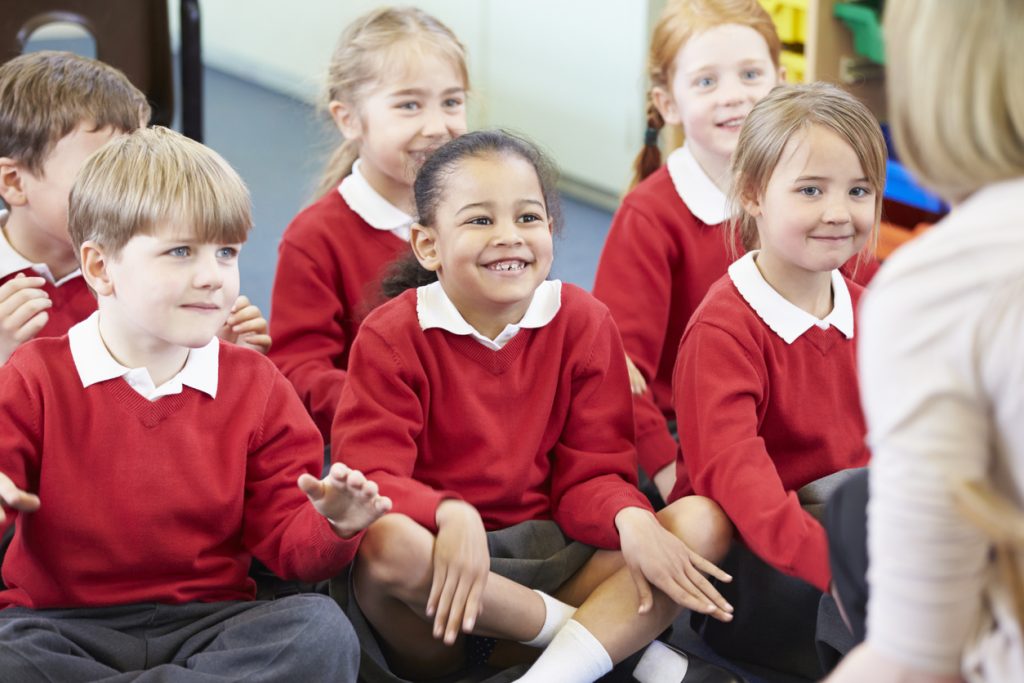
Get more bang for your buck by organising three terms’ worth of activities, advises award-winning author Ali Sparkes. She meets over 15,000 school children a year. Find her at alisparkes.com
Authors. We’re not cheap you know. Well, actually, we’re incredibly good value. But if you’d like us to come along to your school and whip up enthusiasm for reading and writing, you normally have to pay us. Sorry about that.
It’s not that we don’t want to visit. It’s just that it takes up a lot of time and then there’s the dull old business of mortgage paying and family feeding. This means most of us will charge and some of us might even be reassuringly expensive (*ahem*).
So you’re going to need to lock the PE teacher in the sports cupboard to stop them bidding for new bean bags, butter up the PTA for some fundraising (tears can be effective) and, most importantly, work that author visit like a pro. Here’s how.
September
Draw up a shortlist of children’s authors who visit schools and check them out. Many of us go via event agencies such as Authors Aloud UK. Here you can find information about types of presentation and workshops.
Some will have websites where you can get in touch directly. Other schools may make recommendations. Once you’ve established what’s on offer and at what fee, offer up a shortlist to the children at your school.
Launch it in assembly and make sure you have a good stock of these authors’ books in your library. Ask your young readers to check out the books and, between them, decide which author they’d like to invite.
October
Just before half term ask champions for each author and their books to make a presentation to the rest of the school that will persuade them to get behind their choice.
Then give the rest of the school half term to read up a bit more themselves. Encourage use of the local public library if you have one.
November
On the first week back let the voting commence. Once your school or year group has chosen, get in touch with the author. Invite them in during spring term or early summer term.
As a rule of thumb, avoid World Book Day week.
Unless you’re very lucky, the author will already be booked. And even if they’re free, they may be frazzled by the time you get them. March can be mayhem! The best time for a visit, in my opinion, is early summer term, just after Easter.
“March can be mayhem! The best time for a visit, in my opinion, is early summer term, just after Easter”
December
Having booked your author, ask them if they’d be kind enough to email a small writing challenge for the Christmas holidays. It can be as simple as providing the first line of a story to kickstart young writers.
January
Make a display of the shortlisted stories written over Christmas break. Put this alongside the display on your visiting author which will hopefully be taking shape by now.
Ask your writer if they’d be willing to judge the shortlist but please don’t be horribly offended if they decline. We do sometimes end up with an avalanche of judging requests just when we’re approaching deadline, and it’s really difficult to give it the time it needs.
Making sure you sift your shortlist down to just a few entries will make it more likely your visiting author will say yes.
February
Announce your challenge winner and runners up – prizes might be books by the visiting author or book tokens.
Ask your author to dash off something congratulatory you can read out in assembly. Also ask if they’d be willing to record a quick video message on their phone to run on World Book Day.
March
On the run up to World Book Day, set a challenge for children to research the author via their website and other trusted resources.
Then, on World Book Day itself, run a quiz for the whole school. You could maybe even run a Mastermind-style contest for the really keen readers.
That video message you asked for? It could even contain one or two quiz questions from your visiting author.
April
Encourage more reading over Easter. Set a challenge for pupils to come up with interesting questions for the imminent author visit. Aim for ones that will really make an author go, ‘Hmm!’. These are quite rare, you know!
May
The author visits! He or she is delighted with all the preparation you’ve done; the displays, the quizzes, the enthusiasm. It all goes splendidly and your school’s reading and writing levels soar overnight (obviously).
See if you can record an interview with the author in a break. Get your young journalists to write it up for the school newspaper. If you haven’t got one, this would be the time to start one!
June
Make a fiction web. Choosing three of the authors’ most appreciated books, get the children to link them to another book by a different author. This can be through plot, character names or other elements.
Display the books and short reviews, connecting them all with string. For example, in my book Frozen In Time I mention Enid Blyton in the story. So you could connect to one of her adventure about smugglers, then onto another story by a different author about a similar topic.
Readers can follow the threads and then create their own webs.
July
Can you ask your author back for end-of-year prize-giving? If that’s not possible, why not name a prize after them and ask for a written congratulations to the pupil who has done really well in all the author-related tasks you’ve set them this year?
Let the author’s publishers know about this too; there’s a good chance they may send some goodies.
August
Rest.
September
Repeat! If every school I visited did the above, I’d be thrilled, amazed and horribly overworked, so let’s just keep these tips between ourselves, OK?
World Book Day inspirational quotes
Get kids excited for the World Book Day activities you have planned with these wise words from their favourite authors and some of the greatest literary minds of all time…
Neil Gaiman
“The simplest way to make sure that we raise literate children is to teach them to read, and to show them that reading is a pleasurable activity”
Michael Rosen
“Children are surrounded with taboos, restrictions, regulations, timetables, conventions, orders, commands and the like. The world is not of their making.
“Within the confines of a book, chaos can erupt and for that moment the child can find relief from order: the world doesn’t seem quite as fixed as usual.”
Tom Fletcher
“When I was about 13, the first Harry Potter came out – and it changed my life. For the first time, I got completely lost in a book – I wanted to live in that world, and I couldn’t wait for the next instalment in the series.
“When Deathly Hallows was due to be released, McFly were at the height of our career; we played a sold-out gig at the Manchester Arena, then after the show I put on a hooded coat and queued with all the other Rowling fans outside the store where I’d pre-ordered the book, before taking it straight back to the hotel to get started on it… talk about rock and roll!”
Malorie Blackman
“My most positive memories of learning to read are of being read to by my teacher. Every day we would have story time, in every classroom, and I loved it. It made me want to seek out stories for myself.
“The first book I recall reading alone was Enid Blyton’s Mr Meddle’s Muddles, and it made me laugh out loud. Most of all, though, it gave me an immense sense of reading achievement, and inspired me to explore more books and to create my own stories… which eventually led to me becoming a writer.”
Sandi Toksvig
“I was very quick at school, so I got bored, and I’d just not turn up. But I discovered a second-hand bookshop in nearby Guildford, so while all the other girls were buying make-up and sweets, I was spending every penny I had in there.
“That’s where I educated myself, devouring Edith Wharton, Jane Austen, Emily Dickinson, Thomas Hardy. That was my escape.”
Lauren St John
“The sheer joy of being able to dive into a book and escape to a land of adventures is unlike anything else; within two pages I could be on the moors with the Famous Five, or riding a black stallion across the desert.”
Jacqueline Wilson
“Whenever children ask me how they can become authors I always tell them to read lots first and foremost. It’s the most entertaining, absorbing, consoling, enjoyable occupation I know.
“If you read a great deal as a child you increase your vocabulary tremendously, you automatically see the point of paragraphs, you unconsciously learn about pacing and conflict, and the rhythm of the text teaches you grammar.”
Chris Riddell
“I noticed a book called Agaton Sax, and from the pictures alone I could tell that it was much more interesting than Peter and Jane, although the sentences were more complex.
“So I borrowed it, and worked my way through it – I understood maybe one word in five, but through context and the illustrations I got the gist of the story, which was about a Swedish detective with a bloodhound who loved cream cakes.
“It was exhilarating, and I suddenly realised that this is what reading was. Agaton Sax, then, was the book that made me a reader – and once I’d finished it, I went off in search of more stories like it.”
Cressida Cowell
“Opening a book for the very first time still fills me with the same excitement and anticipation that it did as a child. Books enable children to discover new worlds, meet new people and learn about the past, but they also have the power to transform lives.
“By sparking growing imaginations, stimulating critical thinking and helping to develop empathy, reading gives children the very skills they need to succeed at school, at work and in life.”
Alesha Dixon
“What I do remember from childhood – and really powerfully – is the feeling I got when I was reading, and still do. It’s pure escapism – it offers me a chance to dive into something completely, and let my imagination come alive.”
Roald Dahl
“I have a passion for teaching kids to become readers, to become comfortable with a book, not daunted.
“Books shouldn’t be daunting, they should be funny, exciting and wonderful; and learning to be a reader gives a terrific advantage.”
Shirley Hughes
“It seems to me that one of the main problems today is how children are expected to react to everything so quickly, always being rushed from one thing to the next. Then at school, teachers are supposed to push them along as fast as possible, constantly racing to the next target.
“But reading isn’t a competition. My job, as an illustrator, is to slow children down; to encourage them to linger in the story, and to look.”
Maya Angelou
“When I look back, I am so impressed again with the life-giving power of literature. If I were a young person today, trying to gain a sense of myself in the world, I would do that again by reading, just as I did when I was young.”









